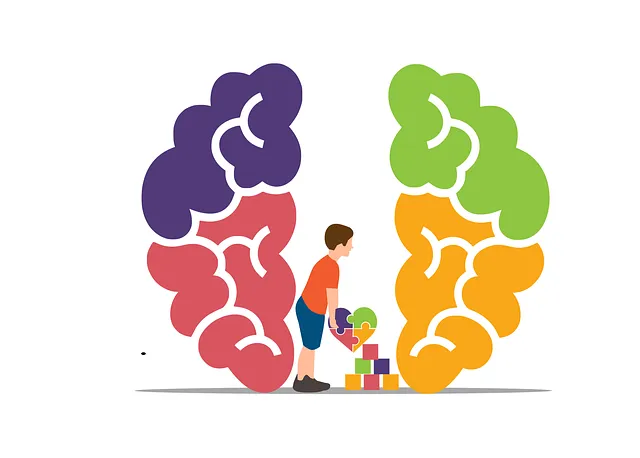Depression prevention and management through early identification, lifestyle changes (exercise, diet, sleep), talking therapies like those offered by Kaiser Permanente psychiatry phone services in Superior, medication (antidepressants), and robust support networks are vital. The Kaiser Permanente psychiatry phone number in Superior provides access to expert resources for addressing mental health concerns effectively.
Depression is a prevalent yet treatable condition that affects millions. If you or someone close to you is struggling, knowing effective prevention strategies is crucial. This comprehensive guide explores various approaches to combat depression, from understanding its signs and symptoms to lifestyle adjustments, therapeutic interventions, medication options (with insights from Kaiser Permanente Psychiatry), and building a robust support network. Discover superior strategies to enhance mental well-being and remember, help is available; reach out to resources like the Kaiser Permanente psychiatry phone number for guidance and support.
- Understanding Depression: Signs and Symptoms
- Lifestyle Changes for Mental Well-being
- Talking Therapies: Effective Treatments
- Medication Options: A Guide from Kaiser Permanente Psychiatry
- Building a Support Network: Superior Strategies
Understanding Depression: Signs and Symptoms

Depression is a complex mental health condition that affects millions worldwide. Recognizing its signs and symptoms is crucial for timely intervention and support. According to Kaiser Permanente’s psychiatry phone number, superior resources, burnout prevention should not be overlooked as an early warning sign of depression. When left unaddressed, it can lead to more severe emotional regulation issues.
The American Psychiatric Association highlights various indicators, including persistent feelings of sadness or loss of interest in activities once enjoyed. Changes in appetite, sleep disturbances, fatigue, difficulty concentrating, and recurrent thoughts of death or suicide are also significant red flags. With proper crisis intervention guidance, individuals can learn to navigate these symptoms and seek appropriate help. Understanding these signs is the first step towards fostering emotional well-being and preventing more severe mental health crises.
Lifestyle Changes for Mental Well-being

Making lifestyle changes can significantly impact mental well-being and play a crucial role in depression prevention. Regular physical activity, for instance, boosts mood by releasing endorphins, which are natural chemicals in the brain that act as powerful antidepressants. Incorporating 30 minutes of exercise most days of the week, whether it’s a brisk walk, yoga, or cycling, can help manage stress and anxiety, thus reducing the risk of depression. A balanced diet is another vital component; ensuring adequate intake of nutrients like omega-3 fatty acids, found in fish, nuts, and seeds, supports brain health and emotional healing processes.
In addition to physical and dietary changes, prioritizing sleep hygiene is essential. Adequate rest is a cornerstone of mental health, as chronic sleep deprivation can contribute to depression. Aim for 7-9 hours of uninterrupted sleep nightly, establishing a consistent sleep routine, and creating a relaxing bedtime environment. These lifestyle adjustments, when combined with support from superior mental health resources, such as those offered by Kaiser Permanente psychiatry phone services, can effectively lower the risk of developing depression and enhance overall well-being. Remember, seeking professional help for anxiety relief or conducting a thorough risk assessment for mental health professionals is always recommended.
Talking Therapies: Effective Treatments

Talking therapies play a pivotal role in depression prevention and management, offering effective treatments that go beyond medication. Superior healthcare providers like Kaiser Permanente recognize the power of psychotherapy in addressing mental health concerns. These therapies provide individuals with valuable tools to cope with depressive episodes and underlying causes. Through professional guidance, patients can develop coping skills, enhance communication strategies, and cultivate resilience.
The process involves creating a safe space to explore thoughts and emotions, fostering self-awareness, and establishing positive behavioral changes. Cultural competency training within these practices ensures diverse populations receive tailored support, acknowledging the influence of cultural backgrounds on mental health experiences. By integrating these evidence-based approaches, individuals can navigate their emotional journeys with increased understanding and improved overall well-being.
Medication Options: A Guide from Kaiser Permanente Psychiatry

Medication can play a significant role in depression prevention and treatment. Kaiser Permanente Psychiatry offers a range of options tailored to individual needs. Antidepressants, such as selective serotonin reuptake inhibitors (SSRIs) and sertraline (Zoloft), are commonly prescribed to balance brain chemicals that may be contributing to depressive symptoms. These medications can help improve mood, appetite, sleep, and energy levels over time.
It’s important to remember that finding the right medication requires collaboration with a healthcare professional. They will consider your unique circumstances, including any existing medical conditions and other medications you may be taking. Regular check-ins with a Kaiser Permanente psychiatrist ensure optimal dosing and side effect management, emphasizing that mental health awareness is not just about managing symptoms but also understanding the underlying causes through conflict resolution techniques when needed.
Building a Support Network: Superior Strategies

Building a robust support network is a powerful strategy to prevent and manage depression. Connecting with others who understand your experiences can provide comfort and encouragement during challenging times. This could include reaching out to friends and family, joining support groups or communities centered around mental health, or seeking professional help from a Kaiser Permanente psychiatry phone number. Having a reliable support system helps reduce feelings of isolation, promotes positive coping mechanisms, and provides a safe space to express emotions freely.
Superior strategies for building this network involve integrating mindfulness meditation practices into social interactions, fostering cultural sensitivity in mental healthcare, and embracing diverse perspectives within support groups. Practices like mindfulness meditation can enhance emotional awareness and improve anxiety relief, making conversations more meaningful. Cultural sensitivity ensures that everyone feels seen, heard, and respected, creating a safe environment where individuals can share their unique experiences without stigma.
Depression is a serious yet treatable condition, and by implementing a combination of lifestyle changes, talking therapies, and building a strong support network, individuals can effectively manage and prevent depressive episodes. Remember, seeking professional help is crucial, and the experts at Kaiser Permanente Psychiatry are readily available via their dedicated phone line to offer guidance and support tailored to your unique needs. With the right strategies in place, you can enhance your mental well-being and foster a superior quality of life, free from the burden of depression.






